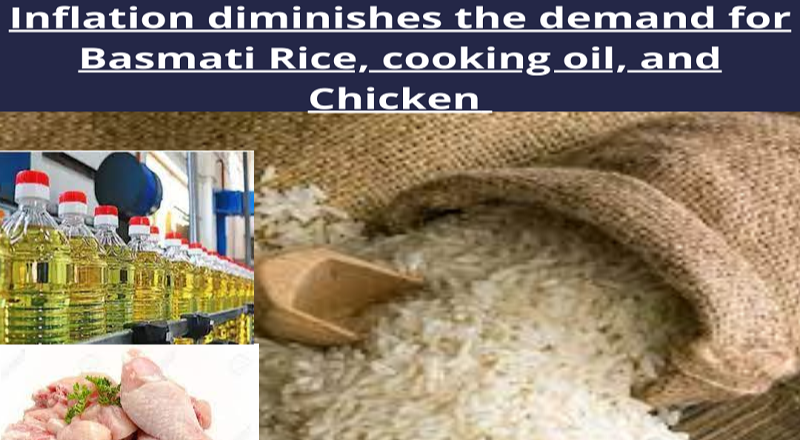Inflation diminishes the demand for Basmati Rice, cooking oil, and Chicken
- Date posted : April 07, 2022

Rising prices and Inflation pulled down the demands for Basmati Rice, cooking oil, and chicken by 15 % in March in comparison to the last year.
The invasion of Russia over Ukraine that started in the last week of February results in the global commodity prices surging as the supply chain was disrupted.
From the times since the war started the global prices of basmati had gone up by $200 per tonne. The impact of global inflation also affects the domestic market. This tapered the demand Indian market by 15 percent. The position war impacted the supply chain that disturbed the scenario of the market.
The Russia-Ukraine war disturbed the supply chain and put some challenges for the foreseeable future. Due to the disruption, people are also making a shift towards the other varieties of rice which are less costly than the Basmati. But even the prices of other varieties of rice facing a hike as the export demand is robust. The war has increased the feed demand of rising in a time of supply concerns for rice that pushing the prices of rice into the excessive volatility territory. Supply chain disturbance is the major factor and checking export restrictions is also important since this disturbance and policies could lead to rising in the price of food.
The rising price of food puts a threat as it increases the market uncertainty that induces production disturbance, decisions, speculation, and inflation. When inflation takes place or the prices fluctuate, it is difficult to manage the production by farmers, exporters find it difficult to understand what to invest and export. This further affects the consumption decisions that depend on the higher prices and availability of food. Due to the high prices of rice, rice exporters need to consider every factor and availability to understand the production and export decisions that ultimately affect the demand and consumption of rice.
The prices were already high due to the pandemic situation though which reduced the grain and increased their prices to the highest level. Then the war begins, Russia's invasion of Ukraine led to market disruptions and the ongoing war increased the prices. Then there is a rise in the prices and the global demand for rice diminishes. Also, Since the war between Russia and Ukraine started the price of rice exports had seen a rise with an increase of 50 % in international freight rates and a 70-80% rise in local freight costs. Rice export prices for various varieties of rice increased from $371 -$378 per MTS.
Also, the disruption in the fertilizers raises the global prices at such a level that budget allocation could be difficult to fertilizer subsidy that needs to be increased. If the war keeps going on, the bad availability of fertilizers in Kharif affect the production of grains like rice, wheat, and more.










Leave a comment